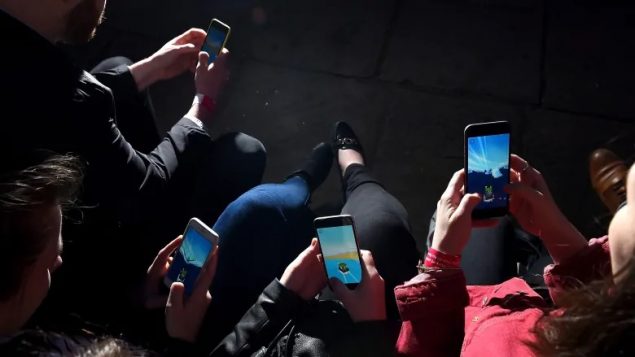Screens are pretty much everywhere we look these days and, I would wager, they’re here to stay.
They are, after all, part-and-parcel of what he we’ve come to call the digital revolution.
(Heck, I’m so old I remember when a screen was something that kept the flies out or a stance you took on a basketball court. But I digress.)

A computer expert operates at the NATO Computer Incident Response Capability (NCIRC) technical centre, at NATO’s military headquarters SHAPE in Mons, southwestern Belgium in a Dec. 10, 2013 file photo. Screens of all shapes and sizes are here to stay. (Yves Logghe/Associated Press)
No, I speak today, of course, of modern screens–from the one on your TV, to the one on your desktop or laptop, to the one on that cellphone that fits so snugly in your hands.
All have their effects, some of them known, some of them not so well known.
The nature of those effects, especially the stressful ones, and how they are generated, became a subject of fascination for Najmeh Khalili-Mahani, a Montreal neuroscientist, associated with both McGill University and Concordia University’s PERFORM Centre.
Fittingly, for someone based in Canada, Khalili-Mahani sought to link some of the findings and ideas from the work of two Canadian icons, Marshal McLuhan and Hans Selye, both of whose work helped inspire her to carry out online investigations into screens, stress and the company they keep.

Neuroscientis Najmeh Khalili-Mahani is affiliated with Montreal’s McGill University and Concordia University. (Courtesy: Concordia University)
Her findings were recently published in the Journal of Medical Internet Research,
I spoke with Khalili-Mahani on Friday about her research and those Canadian icons.
Listen






For reasons beyond our control, and for an undetermined period of time, our comment section is now closed. However, our social networks remain open to your contributions.